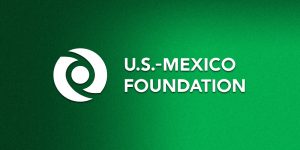 by Joel Abraham Enríquez *
by Joel Abraham Enríquez *
The world’s economy continues to crawl in an often-unsustainable way fueling economic imbalances, wealth inequality, and environmental degradation. In the last century, humanity has been able to raise, in general, the standard of living but at the expense of future generations. According to the Global footprint network, we need the resources of 1.6 Earths to support the world’s current lifestyle.
In the short term, the world will need to face many challenges. By 2030, the world population will be reaching 8 billion people, even with the pandemic’s catastrophic interruption, which will mean 40% higher demand for water, 35% more food and 50% more energy.
In our particular case in North America, climate and sustainability challenges can rapidly become a human security problem deriving in national security issues, internally and externally. All countries, particularly the North American region, will have to preach with the example to address unsustainable consumption and improve sustainable production patterns while neutralizing environmental impact. Our economies need to find a way to continue growing after the pandemic while becoming a greener and sustainable powerhouse.
Meeting our development and sustainability goals will require a combination of public, philanthropic, and private investment capital along with regulatory change. We need to mobilize institutional wealth, primarily sovereign and private wealth funds, to invest and create a multiplier effect and drive measurable social returns.
Assets in pension funds exceeded US $38 trillion in the OECD area at the end of 2016, according to the OECD statistics report. The United States alone held around 66% of these assets. And our regional partner, Canada, holds pension funds’ assets that exceeded their GDP.
Based on their amount of assets and intrinsic power, public and private funds in North America combined have enough capital to disrupt and change the game rules. As a large asset owner, North America can reshape markets and help create a mainstream for social impact investment. The power and influence of many of these actors are incredible, as evidenced by some of the world’s most substantial funds that have signed onto incorporate ESGs into their investment strategies.
As I see it, US, Canadian and Mexican funds can do a lot more and play a definitive and critical role in achieving specific SDGs. Such as zero hunger, quality education, good health, well-being, industry, innovation, infrastructure, and climate action. On top of our priorities, we can be driving the most ambitious research and investment needed to finance an affordable and cleaner energy transition to secure our position as the worlds’ powerhouse.
In the words of Harvard professor, David Wood: “Pension and public funds trustees have a fiduciary obligation to their members; investment decisions must serve the interests of all their beneficiaries. Fiduciary duty, in theory, is the governance tool that aligns the interests of investors with beneficiaries and ensures sound decision-making.”
Massive public pressure and political will can promote private and public investment as crucial to finance our regional and world’s sustainable development. The general gap is too large to reach with public funds alone. Our countries and policymakers need to create a growing universe of attractive opportunities for these investors and different joint investment vehicles with public, private, and even sovereign or development funds.
* Joel Abraham Enríquez is Chief Governance Officer (CGO) & Corporate Affairs at Jaguar Exploration and Production, responsible for strategic communications, legal counsel, security, CSR & BC. He is also a member of the Young Advisory Council of of The US-Mexico Foundation, a binational non-profit organization dedicated to fostering bilateral cooperation and improving the understanding between the United States and Mexico by activating key people in the relationship that once were dormant.


